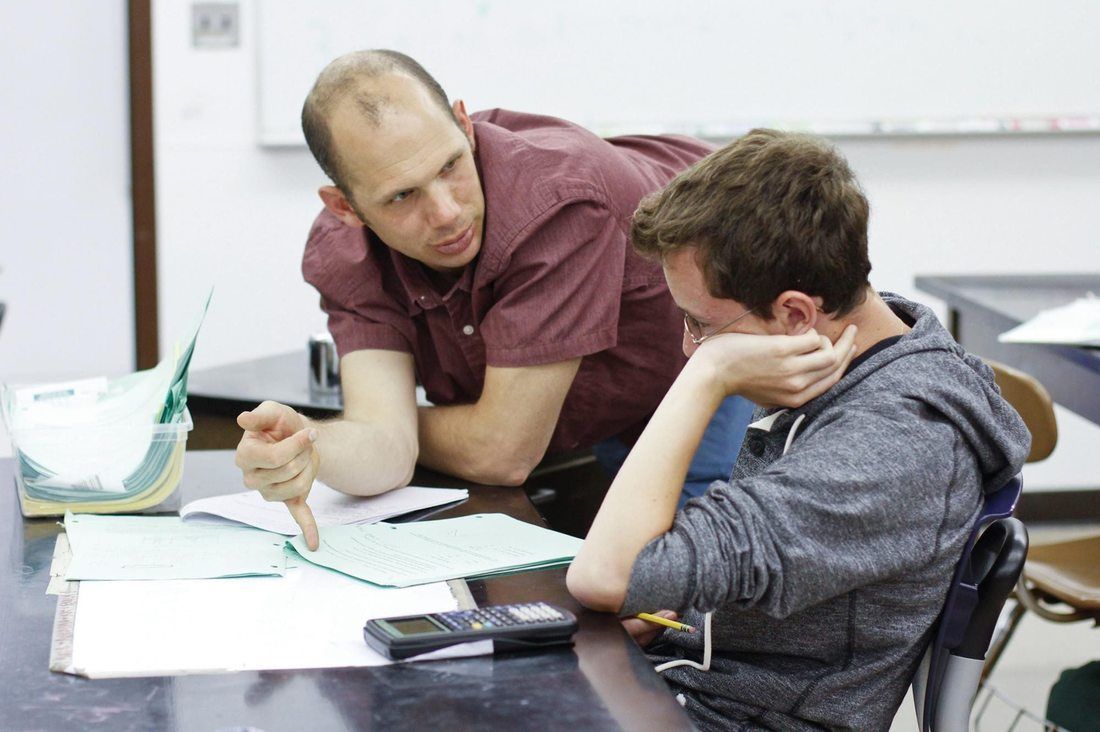|
|
|
Whether you are implementing some form of flip instruction, using an online assessment system such as ALEKS, or requiring your students to engage with one of a myriad of activities outside of the traditional classroom space, negotiating the issue of equal access is always a concern. Keeping in mind the intention of this website, I am a firm believer that flip instruction, regardless of model, is not a silver bullet, or even a form of pedagogy. Rather, “flip” is a means of harnessing technology to more appropriately allocate activities that are better suited for exploration outside of the classroom, WITHIN the context of an inquiry cycle.
I have always preached the following: “It is not a silver bullet, if your students don’t have access, then try something else. If your students do, then harness that option appropriately”. However, the more I speak to others about technology in the classroom, I become even more perplexed by the access reality. Some argue that access is no longer an issue, others feel that requiring students to engage in online activities outside of the classroom creates an unequal playing field, while many passionately claim that we are handicapping our students by not empowering them with the ability to seek out the tools necessary to engage in the 21st century learning activities. Click here to access data regarding internet access provided by Pew Internet. This past week I was honored to work with a friend who is a 9th grade algebra teacher at a school just south of San Francisco. He is interested in the Explore-Flip-Apply model, however, given the dynamics of his school, and diversity of his students, he was weary about assigning homework that required access to the internet. Rather than simply guess and go for it, we worked together to develop a simple plan to more intentionally address any access issues in his class. The goal was to create a survey that would encourage a very honest response regarding access rather than couch our question in the context of a homework assignment plan, etc. Below are the steps we took: Step 1: We created a google form with the following two questions. Students answered form form the library computers. 1. Can you update your Facebook status from home or from a mobile device (e.g., laptop, phone, iPad, etc.)? 2. If you answered “No” to the question above, you did so because...a) you don’t have personal internet access b) you don’t use Facebook. Step 2: We analyzed the data. 72% answered “Yes” to the Facebook status question. It was assumed that these students can access the internet individually, outside of the classroom. 15% answered “No” because they do not use Facebook, however said they could access the internet for other activities. It was assumed that these students can access the internet individually, outside of the classroom. 13% answered “No” because they did not have access at home. Step 4: On the following day, we met with each student who fell within the 13% (4 students) and asked for their feedback on the following options: Option 1: Come to class 15 minutes early on the day an internet based assignment (usually instructional screencast) is due, and view it on one of four classroom computes. (This teacher purchased 4 laptops from eBay for fairly cheap and also offers up his own personal laptop during this time). Option 2: Research hours of the school’s library/Internt access and that of their local library. Use locations to complete internet based assignment. Option 3: Ask a family member, neighbor, or friend whom you see often if you can use their internet for ~ 30 minutes/week (In a traditional Explore-Flip-Apply model, the students are only viewing ~ 2 vids a week, and each is ~ 8 minutes. We added on an extra 15 minutes to give the student time to fill out the associated form used for reflection and tracking of the video). Option 4: Come up with your own plan for accessing the internet. Students were given a few days to figure out their strategy, while we confirmed that the other 87% had access. The 4 students were told that if they could not figure out a feasible strategy, that we would work with them individually to figure something out. Two out of the 4 students decided that coming into class early on days where lectures were due would work for them. Anecdotally, when my students choose this option, I find that their investment in the following problem solving sessions is greater. Most likely due in part to the close proximity between viewing a video of basic content, and direct application of that content. Another student decided to use the school library, and the final student, given her schedule, found none of the options suitable. For her, the instructor loaned out an old department laptop with wireless capabilities, and worked out a plan with her and her mother where she would visit a local coffee shop that provided wireless access near her home a few times a week. All in all, the process was very simple. However, rather than simply assuming all students had access as I have done in the past, helping a colleague through this process shed light onto the realities of the access issue for this particular class. Additionally, we learned that negotiating the access issue, with a little creativity, can be a very feasible process. Obviously how the percentages break down is a function of the school community, student demographics, etc. Perhaps this post can shed light into a simple way of negotiating student access in your class. Subjectively, I could just sense that the students appreciated the intentional way we worked WITH them, rather than simply assume that they are “digital natives” and all have access. Comments are closed.
|
Categories
All
Archives
March 2024
|

 RSS Feed
RSS Feed